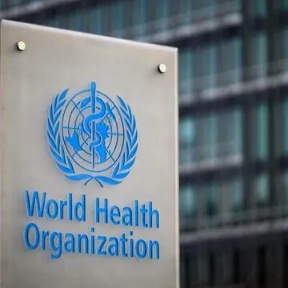15 Million Children Lack Access to Vaccines Due to Funding Cuts – UNICEF, WHO Report.
- Home
- 15 Million Children Lack Access to Vaccines Due to Funding Cuts – UNICEF, WHO Report.

- 28 Apr, 2025
- Faith Kegh
- comments off
15 Million Children Lack Access to Vaccines Due to Funding Cuts – UNICEF, WHO Report.
A recent report from the United Nations Children’s Fund (UNICEF) and the World Health Organization (WHO) has revealed that at least 15 million vulnerable children globally lack access to vaccines, putting them at risk of outbreaks of preventable diseases. The shortage is largely attributed to cuts in global health funding, which threaten lives and increase the costs of treating diseases and managing outbreaks.
Dr. Olusoji Akinleye, a Health Specialist at UNICEF, discussed these findings at a Media Dialogue held in Enugu, Nigeria, as part of the 2025 World Immunisation Week. The dialogue, aimed at 12 Nigerian states, focused on the theme “Immunisation for All is Humanly Possible.” Akinleye highlighted that the global decline in health funding was exacerbating the situation, leading to disruptions in vaccination campaigns and supplies. The COVID-19 pandemic, which diverted vaccine production resources to the pandemic response, worsened vaccine availability and contributed to increased vaccine hesitancy.
The report noted that in 2023, 40.5 million children missed all their routine vaccine doses, a significant rise from previous years. Over half of these children live in countries facing conflict or instability, where access to healthcare is limited. Nigeria is among the nations experiencing these challenges. Akinleye cited the WHO’s warning that the global funding crisis is severely limiting vaccination efforts, particularly in fragile countries.
Despite these setbacks, joint efforts by UNICEF and its partners have helped deliver vaccines to millions of children, saving many lives, particularly in the African region. However, Akinleye emphasized the urgent need for sustained political efforts and investments to strengthen immunisation programs and protect the progress made in reducing child mortality over the past five decades.
He also pointed to other challenges affecting health systems, such as economic instability, a shrinking healthcare workforce, and insecurity. These issues hinder access to healthcare and make it difficult for health professionals to provide services, particularly in conflict-affected areas.
UNICEF’s Field Officer in Enugu, Juliet Chiluwe, reiterated the organization’s commitment to supporting healthcare for women and children. She stressed that UNICEF would continue to provide necessary resources to ensure vaccines reach the most vulnerable populations. Dr. Ijeoma Onuoha Ogwe, the Communications Officer for UNICEF in Enugu, explained that the goal of the media dialogue was to engage the press in raising awareness and promoting advocacy for immunisation.
Dr. Ifeyinwa Anyanyo, another UNICEF Health Specialist, discussed efforts to ensure vaccines reach local communities, despite ongoing security challenges. The session highlighted the need for continuous support to ensure that no child is left behind in the fight against vaccine-preventable diseases.

Content & Editorial Manager – Leads the creation, review, and publication of high-quality news and media content. She ensures that all editorial work reflects the organization’s standards of accuracy, professionalism, and relevance, while also engaging and informing the audience.
As the key driver of TokinPoint Media LTD’s editorial voice, the manager oversees content planning, assigns tasks to writers or editors, enforces deadlines, and ensures consistency across all platforms. She also plays a strategic role in aligning content with audience interests and search engine optimization (SEO) best practices.
Discover more from TokinPoint
Subscribe to get the latest posts sent to your email.
- Share
Faith Kegh
Content & Editorial Manager - Leads the creation, review, and publication of high-quality news and media content. She ensures that all editorial work reflects the organization’s standards of accuracy, professionalism, and relevance, while also engaging and informing the audience.
As the key driver of TokinPoint Media LTD's editorial voice, the manager oversees content planning, assigns tasks to writers or editors, enforces deadlines, and ensures consistency across all platforms. She also plays a strategic role in aligning content with audience interests and search engine optimization (SEO) best practices.
